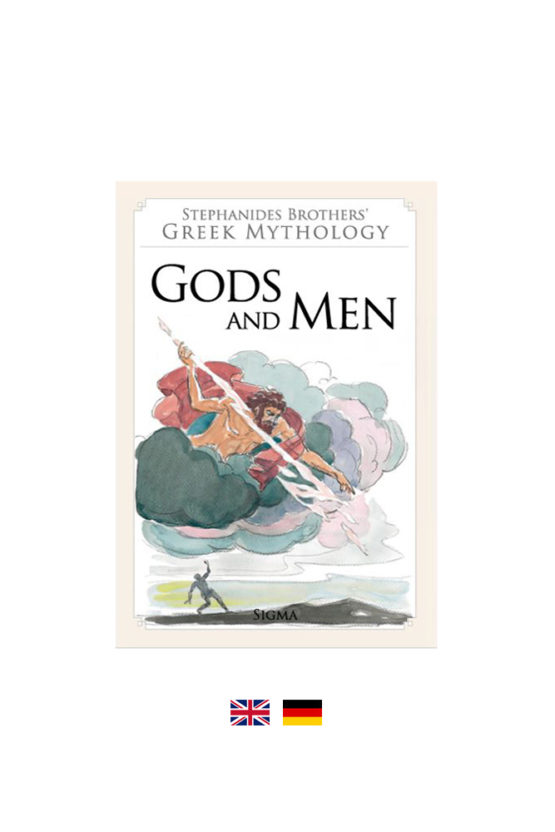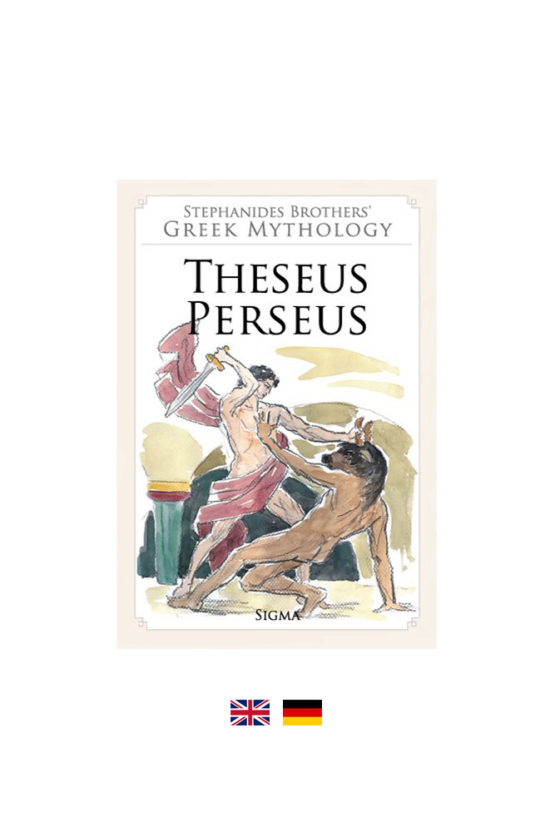Aesop’s Fables & Jokes by Ierocles
7.90€
Aesop
Nothing is known for certain about the life of Aesop, though legend has it that he lived in the sixth century BC and came from Phrygia, in Asia Minor. Supposedly a slave who had been set free by his master, he was said to have spoken with a stutter and to have been an ugly, hunchbacked man. He lived on the island of Samos until he gained his freedom, then travelled in Asia and Egypt before coming to Greece, where he spent time both in the city of Corinth, under Periander, and in Athens, whose ruler at that time was the lawmaker and poet Solon, thus coming into contact with the so-called ‘seven wise men’ of ancient Greece, whose rational way of thinking had much in common with Aesop’s own. According to the same tradition, Aesop met his death at Delphi, murdered by its angry citizens for declaring them unworthy of the gift of gold that King Croesus had sent him to distribute. The work that he has left us consists of over two hundred short fables, usually with talking animals as heroes but occasionally with men or even gods, in which cunning is entertainingly pitted against naïveté, and malice against kind-heartedness, till in the end some kind of instructive conclusion is always drawn. This is invariably expressed in the form of a moral, even when the conclusion is so obvious as not to need restating. The oldest surviving collection of Aesop’s fables was compiled by Demetrius of Phalirea in the fourth century BC, and was followed by many others, not always accurately recorded, with the result that the original form of each tale slowly faded into the mists of time. Yet in his fables, Aesop had created a new and original category of writing, even if it was one that no other writer took up after him. Those later writers who reworked a number of his fables merely added literary flourishes to the bare style of the originals. Particularly successful versions were produced by the French writers La Fontaine in the seventeenth century and Florian in the eighteenth, followed by the Russian author Krilov in the late eighteenth and early nineteenth centuries. All of these were in verse. Aesop’s fables have become so popular over the years that they have been republished countless times in one form or another and have kept readers both young and old amused for centuries. They may not be great works of literature, but they have remained among the most widely read stories of all times.
The present edition, which presents the fables in their original simple form, aims not only to entertain the reader but to give him a closer experience of this unique and, one might add, immortal form of the written word.
Ierocles
A philosopher who taught at the Neo-Platonist school in Alexandria from 420-450AD, Ierocles was influenced both by Platonic philosophy and by the peripatetics and the stoics. Among his writings there have also been preserved some one hundred and fifty jokes from which the selection below is taken. Although more than fifteen hundred years have passed since they were written, they still have the power to make us laugh today.
Menelaos Stephanides
| Weight | 0.200 kg |
|---|---|
| Dimensions | 11.50 × 16.50 cm |
| LANGUAGE | , |
| Πληροφορίες |
192 pages |
















